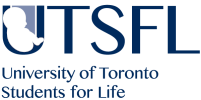“Living is not an obligation.”
As an extension of our series on euthanasia and assisted suicide, we’re working our way through COLF‘s “quick answers to common arguments” document. This is argument number three.
“Living is not an obligation. I don’t want to die hooked up to a bunch of machines or forced to stay alive when I know it’s time to pass on.”
There is no legal obligation to receive treatment in Canada. A competent patient or the proxy of an incompetent patient has the legal power to accept or refuse any treatment, or ask that it be discontinued.
Many people don’t understand what euthanasia is. The refusal of treatment is not euthanasia or assisted suicide. It’s the refusal of treatment. That’s a right we affirm; this argument misunderstands the pro-life position.
The withdrawal or withholding of extraordinary or disproportionate treatment, when its burdens outweigh its benefit, is not euthanasia because the intention is not to cause death but to allow the person to die naturally; in euthanasia the intention is to cause death – the patient does not die naturally but rather is killed by another human being before his or her time.
A means/ends/consequence breakdown is useful here. In euthanasia and assisted suicide, the goal may be to end a patient’s suffering, but a patient’s death is directly sought as the means of ending that suffering. Death is a desired consequence of the act. But when refusing treatment, death is an unintended foreseen consequence. The intent is to refuse treatment, to alleviate pain or undue burden, and the result is that the disease or natural ailment then takes its toll. The ailment causes death, not the act of any person.
It’s the difference between killing someone, and letting nature take its course.
When disproportionate treatment is withdrawn or withheld, the cause of death is the underlying disease or condition; in euthanasia the cause of death is the lethal injection, pill or other means used. There is a great difference between allowing to die and making die.
It’s good practice responding to these points before reading ahead…
Artificial nutrition and hydration are considered ordinary care – not treatment – and must, in principle, be given to the patient. Food and water are basic necessities of life which do not treat any specific condition. A person should never die because they have been deprived of nutrition and hydration. However in certain circumstances, such as near the end of life, the body may not be able to assimilate food and water or the procedures used can be too burdensome to continue. In these situations, artificial nutrition and hydration can be discontinued.
An important qualifier: starving someone to death is not the same thing as refusing treatment (but for exceptional circumstances near the end of life).
Previous posts in this series:
- “I want to die with dignity.”
- “It’s my life, my death, my freedom, my choice, my right!”
- Alex Schadenberg at U of T
- Canadian Physicians for Life Educates Pro-Life Medical Students
- Euthanasia Bill Shut Down In South Australia
- Man trapped in 23-year “coma” misdiagnosed
- Euthanasia and Assisted Suicide: Why Not?
- Euthanasia is not appropriate care

Thought you might find this interesting:
http://nohiddenmagenta.wordpress.com/2010/02/04/a-bioethics-bombshell/